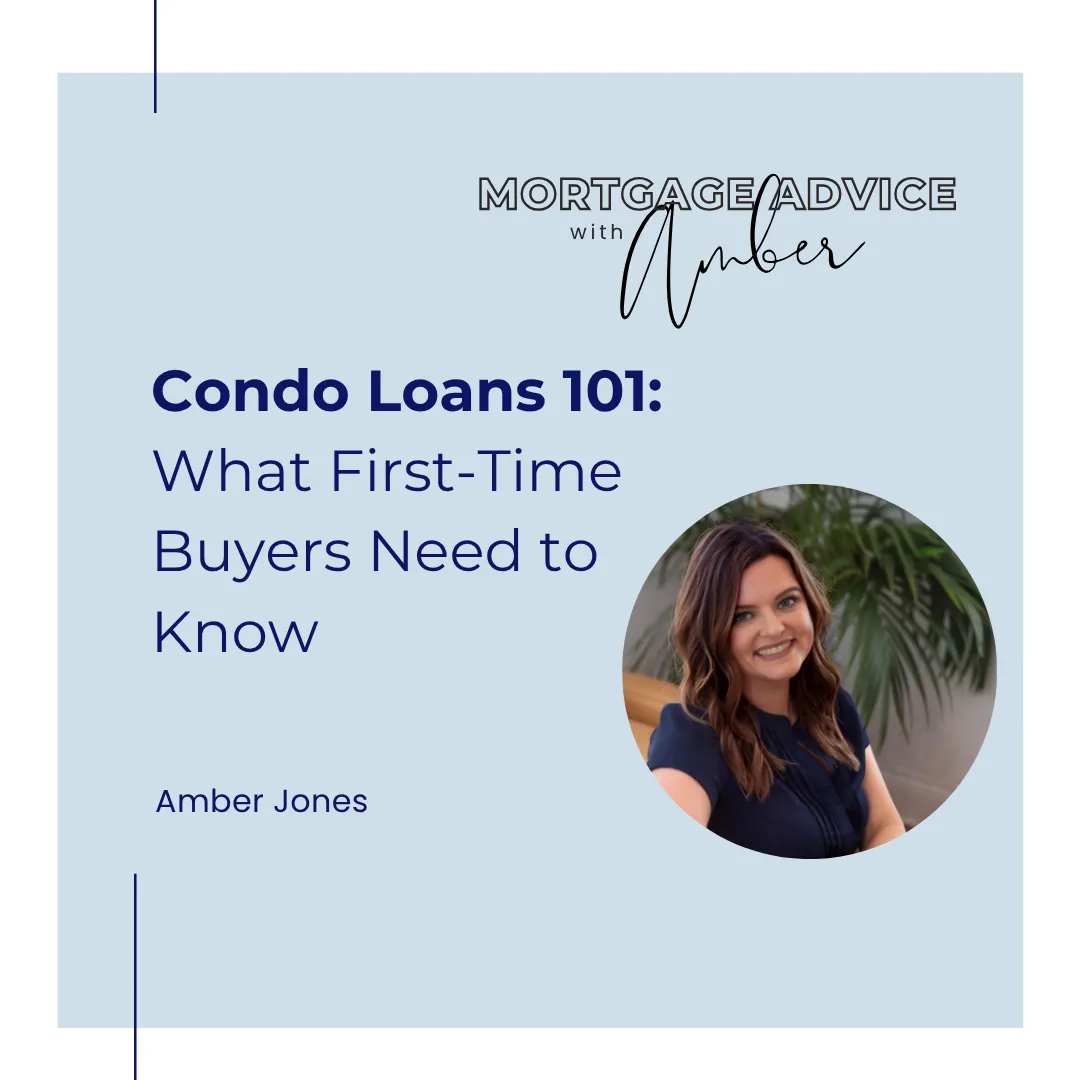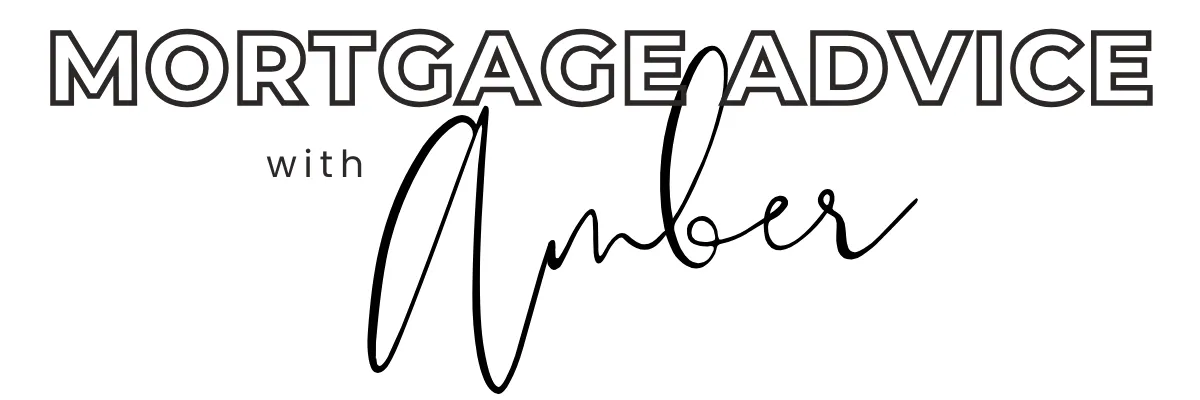
Condo Loans 101: What First-Time Buyers Need to Know
“If you’ve ever played the game Guess Who?, that’s exactly how this process will go. We’ll eliminate what doesn’t fit until we find the loan and condo combo that works for you.”
— Amber Jones

Condo Loans 101: The 4 Condo Loan Types First-Time Buyers Need to Know
By Amber Jones
Did you know that when you're buying a condo, it's not just you who needs to qualify — the condo itself has to qualify too?
Whether you're a first-time homebuyer just dipping your toes into the real estate world or someone eyeing a lower-maintenance lifestyle, understanding the condo loan landscape is a must.
🎥 Watch the quick video overview below to get started:
Why the Condo Has to Qualify, Too
When you’re purchasing a standalone home, the underwriting process focuses mostly on you, your credit, your income, your assets. But with a condominium, the lender also has to take a hard look at the health of the entire building or complex.
Why? Because with shared walls and shared responsibilities come shared risks.
Lenders want to make sure the Homeowners Association (HOA) is financially sound, the rules are fair, and the insurance is solid, all of which can impact your ability to get financing and ultimately resell your condo if needed.
The Condo Review Process: 4 Key Documents Lenders Examine
Regardless of the loan type, VA, FHA, conventional, or non-warrantable, all condos must pass a review process. Here are the four critical documents lenders evaluate:
1. HOA Lender Questionnaire
This form is typically filled out by the property management company and includes:
Total number of units
Owner-occupancy ratios
Delinquency rates on HOA dues
Pending litigation
Insurance details
This helps the lender understand how stable and financially responsible the condo community is.
2. CC&Rs and Bylaws
Short for “Covenants, Conditions, and Restrictions,” these documents are essentially the rule book for the complex. Lenders want to make sure there’s:
No language that restricts resale after foreclosure
No discriminatory policies that violate fair housing laws
3. HOA Budget
Lenders look at how the HOA handles its money:
Monthly income from dues
Operating expenses
Reserve fund contributions for future repairs
A weak or mismanaged budget can raise red flags.
4. Master Insurance Policy
This policy protects the entire complex. Lenders review it to ensure there’s adequate coverage:
Some policies cover just the exterior
Others offer “walls-in” coverage, which includes interiors
Either way, the insurance must meet the lender’s minimum standards to approve financing.
🔔 Pro Tip: If any of these documents are outdated, incomplete, or show red flags, it could delay or disqualify your loan — even if you’re fully approved as a buyer.
The 4 Types of Condo Loans You Should Know
Let’s break down the four main condo loan types — and what each means for you as a first-time buyer.
1. VA Loans – For Veterans, Active Duty, and Eligible Spouses
If you’re a veteran, active duty, or a surviving spouse, a VA loan might be the best option available.
Why first-time buyers love it:
0% down payment required
No mortgage insurance
Competitive interest rates
One major bonus? Once a complex is VA-approved without conditions, that approval doesn’t expire — even if other variables (like budget fluctuations) change over time.
👉 Expert Insight from Amber:
“I love working with VA buyers because once we find an approved complex, we don’t have to worry about that approval being yanked later. It gives my clients peace of mind and one less thing to stress about.”
2. FHA Loans – Low Down Payments with Flexible Credit Requirements
FHA loans are a go-to for many first-time buyers thanks to their low down payment requirements and more forgiving credit guidelines.
Pros:
As little as 3.5% down
More lenient on credit scores
Here’s the catch: FHA condo approvals are only good for 3 years. After that, the complex must be re-certified — and not all HOAs take the steps to renew.
If a complex’s certification has expired, you might still be in luck thanks to something called Single Unit Approval. This allows the lender to approve your individual unit, even if the full complex isn’t FHA certified — as long as it meets all the review criteria.
3. Conventional Loans – The Most Flexible Approval Route
Conventional loans (backed by Fannie Mae or Freddie Mac) are often the most adaptable, especially if the complex isn’t already on a pre-approved list.
Why they work well:
No pre-approval of the complex needed to start the loan process
Lower down payments (as little as 3% for qualified first-time buyers)
More flexible loan amounts
If the condo complex is already listed as eligible by Fannie or Freddie, sometimes all that’s needed is an updated master insurance policy — meaning fewer documents, faster processing.
But, if it doesn’t meet the criteria, the complex is considered non-warrantable, which brings us to...
4. Non-Warrantable Loans – Specialty Loans for Tricky Situations
A non-warrantable condo simply means the property doesn’t meet standard guidelines set by VA, FHA, or conventional loan programs.
It might sound scary, but it’s not a deal breaker.
These situations often involve:
Lawsuits against the HOA
Too many renters vs. owner-occupants
Insufficient reserves due to recent repairs
In these cases, specialty financing is available, but it does come with some added requirements.
For example:
At least 10% down is usually required
Interest rates may be slightly higher
Larger down payments can help offset costs
These loans are still accessible — you’ll just need a mortgage professional who knows how to navigate them.
How to Choose the Right Condo Loan (Without the Stress)
If this all feels like playing a game of Guess Who, you're not alone. The good news? That’s exactly where I come in.
As a Certified Mortgage Advisor who specializes in helping first-time condo buyers, I guide you through the process of:
Determining which loan programs you qualify for
Collaborating with your realtor to identify complexes that meet those guidelines
Securing financing that matches your budget, goals, and lifestyle
Whether you're eligible for VA, FHA, conventional, or need a non-warrantable option — there's a solution for every scenario.
Let’s Find the Right Fit for You
I’ve helped first-time buyers successfully navigate every kind of condo loan and complex — and I’d love to do the same for you.
Let’s schedule a quick 15-minute chat to figure out your best path forward. You bring your questions, and I’ll bring the clarity.
And hey, if this info helped you, don’t forget to share it with a friend who might be on a similar homebuying journey.

